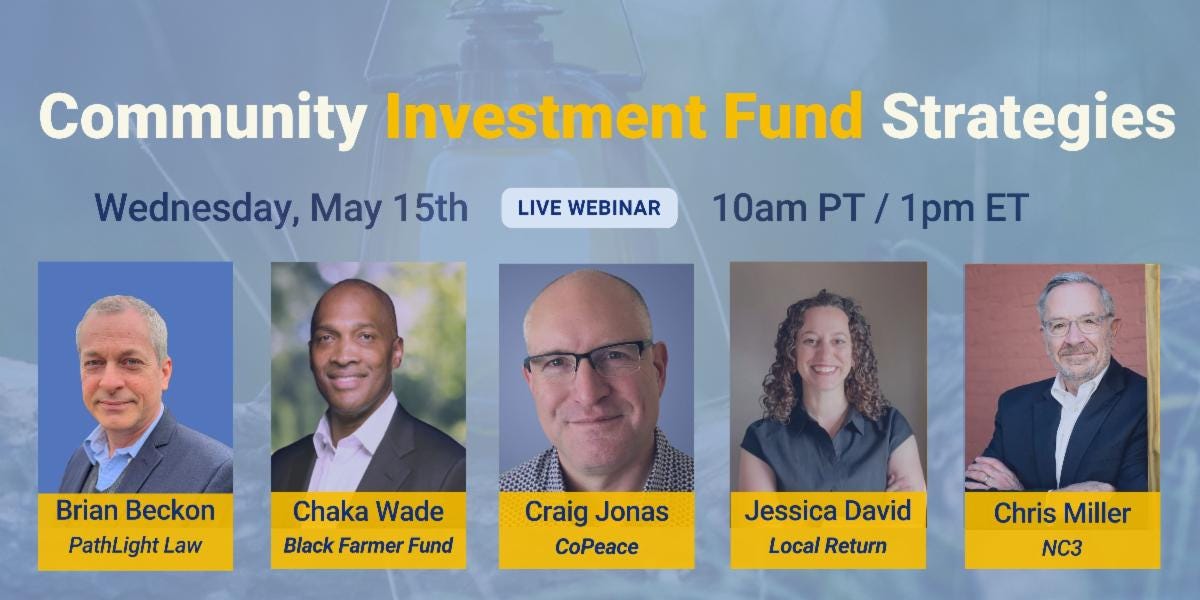About twenty years ago, Stewart Smith, the then Commissioner of Agriculture for the state of Maine, analyzed the cost of a typical foodstuff item in the years 1900 and 2000. In 1900, about 40% of a food dollar spent went to the farmer, and the rest to inputs and distribution. That distribution number included processing, refrigeration, packaging, transportation, retail markup, and more. By 2000, seven cents went to the farmer, and distribution accounted for more than 73 cents.
It doesn’t take a math genius to observe the obvious: Whenever distribution costs are significantly larger than production costs, there is a powerful case for localization. Even if local farming doubles the production costs, say to 14 cents on the dollar, you can bring down the cost of local food if you can reduce the wasted expenses in distribution with less packaging, less processing, and direct delivery.
This is one reason why the local food movement has taken root all across the planet: Why ship, say, soybeans halfway around the planet (which are mostly water) when you can grow the soybeans yourself? But for massive subsidies to fossil fuels, large farms, water, and shipping “infrastructure,” much of this globalized food system would never pencil out.
And if you think the current system is delivering affordable food to all Americans, you haven’t been paying attention to the huge number of food deserts in the country. In 2017, the U.S. Department of Agriculture reported that nearly 40 million Americans did not have access to affordable food. COVID, of course, greatly worsened this problem. But these numbers also suggest an opportunity for local investment to help fix the problem.
Our lead story is about the grand opening of the Detroit People’s Food Co-op. After 14 years of planning, organizing, and capital raising by the Detroit Black Community Food Sovereignty Network, residents living in the north end of Detroit finally have affordable groceries. Congratulations to Malik Yakini and his colleagues!
Our second story shows more broadly how Community Development Financial Institutions (CDFIs) have been strengthening local food systems across the country.
You will also find several other articles of interest:
A resident in Minnesota’s struggling Iron Range argues how much better economic development has proceeded in neighboring North Dakota because of that state’s 100+ year-old public bank.
Meld Studio, a worker-owned company in Australia, just received national recognition as one of the best places to work in the country. The company also recently helped reform Australian law to encourage the creation of more employee-ownership trusts.
Finally, ImpactAlpha reports on how the Milken Institute’s 10,000 Communities Initiative is helping distressed neighborhoods take advantage of the federal government’s Greenhouse Gas Reduction Fund.
If you want more news, please subscribe to the MSJ Extra! through this handy link. There, you will find interviews and the latest listings of local investment opportunities.
~ Michael Shuman, Publisher
Jump to a Section:
✔️ MSJ Extra! Teaser
✔️ News from NC3
✔️ Partner News & Voices
✔️ Events
✔️ Jobs Board
NEWS
14 Years in the Making—The Detroit People’s Food Co-op Opens, Detroit Free Press (May 1)
Funding Local Food Systems, GreenMoney (May 1)
Employee-Owned Trust Placed in Top 5 Best Places to Work in Australia, Meld Studios (May 1)
Public Bank Versus Public Patronage, Public Banking Institute (April 22)
Community Development Financial Institutions Clean Energy Loan Pilot, ImpactAlpha (May 2)
WHAT YOU MISSED IN LAST WEEK’S MSJ EXTRA!
Any successful movement requires a great journalist to chronicle it. And for the local investment movement, our historian has been Amy Cortese. When we first met more than a decade ago, she was publishing her groundbreaking book called Locavesting and writing related stories periodically for the New York Times. She then started a widely read blog on the topic. She ultimately decided in 2019 to trade in her freelancer hat to work for ImpactAlpha, an online magazine for impact investors.
MS: I have to admit, I’ve always thought that local investment and impact investment were strange bedfellows in that most impact investing seems to be organized around non-local securities. How have you been able to continue your local investing work in this new framework?
AC: There is a very healthy community of impact investors focused on place or places. Most of it is in the private market. Local individuals may not always have the opportunity to invest, but every investment has some sort of local impact. One area where we’re seeing a lot of innovation and interest is in real estate, where local developers are creating investment and ownership opportunities for the community. Philly’s Kensington Corridor Trust and Kansan City’s LocalCode are a couple of examples. We just wrote about a fund that is raising money to support local internet service providers building out broadband internet in Appalachia. Climate solutions can be very place-based as well.
MS: If you were giving advice to an impact investor, when would you encourage them to search for local investments? And when would you say global is better?
AC: We face some pretty tremendous challenges as a society, not least of which is a rapidly warming planet. Sometimes, a big, scalable solution is going to have the most impact. But I would say impact investors should not overlook opportunities in their own backyards to make a difference.
Can Impact Investing Go Local?
Our featured interview in this issue is with Amy Cortese, one of the principals at ImpactAlpha, who puts out news and other tools to support impact investors almost daily. A decade ago, Amy was best known for authoring Locavesting, a great book about the emerging principles and practices of local investment. As you’ll see below, I confess that I worry a…
SPONSOR CORNER
The National Coalition for Community Capital (NC3) is dedicated to educating, advocating, and activating community capital—and serves as MSJ's fiscal sponsor. Thank you for being a part of a growing movement!
NC3 UPDATES AND ANNOUNCEMENTS
The National Economic Research and Resilience Center hosted its National Economic Resilience Forum this past week in Illinois. We heard from U.S. Treasurer Chief Lynn Malerba about current and future programs for U.S. and Tribal Lands’ economic resilience, while other speakers throughout the week addressed rural broadband infrastructure access, place-based industry, and transitioning energy systems alongside climate change resilience. NC3 hopes to continue these conversations and pursue integrating community capital in resilient economic development wherever possible.
Happy Economic Development Week! The International Economic Development Council (IEDC) hosts this week annually to highlight the programs, initiatives, and individuals working hard to shape the most effective economic development. This year, the IEDC is highlighting Economic Development Heroes—get inspired by their stories shared on LinkedIn and engage in your community's economic development today! Be sure to reach out to us for support integrating local investing in your work: info@nc3now.org.
PARTNER NEWS & VOICES
Modeling the New Economy and Creating the Main Street Plumbing, Impact Finance Center (May 1)
Employee Ownership Inspiration Award Nominees, Project Equity (April 23)
NEW INVESTMENT OPPORTUNITIES
Our complete list of recently posted investment opportunities has moved to MSJ Extra! As a teaser, here is an offering from our list. (Please note that our listing of these opportunities is not an endorsement, and remember that all investments are risky, so click on the hyperlinks and read all the details carefully before investing.)
Bircus Brewing Co. (Ludlow, KY), Mainvest: Combination brewery and circus is looking to expand into an Opportunity Zone.
NOTABLE NEW RESOURCES
Women and Minority-Owned Businesses in Regulation Crowdfunding, U.S. Securities and Exchange Commission (May 1)
State of Blended Finance, Convergence (April 30)
#WeOwnThis, Rethink Real Estate for Good (April 24)
FEATURED EVENT
Community Investment Fund Strategies - Virtual Event. May 15, at 1 pm ET. (Register by May 10.)
MORE EVENTS
Remaking the Economy: Worker Self-Directed Nonprofits in Practice - Virtual Event. May 15, at 2 pm ET.
Online Legal Cafe - Virtual Event. May 15, at 3 pm ET.
Slow Money Farm Fest - Brentwood, CA. May 18.
The Past, Present, and Future of Public Banking With Ellen Brown - Virtual Event. May 22 at 9 pm ET.
Scaling Up Mission-Driven Community Composting - Virtual Event. May 23 at 12:30 pm ET.
ICYMI
Co-Founder Alison Lingane Announces Transition, Project Equity
JOBS BOARD
Candide Group: Director of Operations
ImpactPHL: Chief Executive Officer
Mission Driven Finance: CARE Finance Senior Director and Senior Data and Analytics Engineer
Project Equity: Head of Finance and Administration
IF YOU LIKE THE MAIN STREET JOURNAL…
…please share with friends, family, colleagues, and skeptics of local investing. Subscribers to our flagship publication pay nothing, but we encourage supporters also to consider making a tax-deductible donation here:
BECOME A MAIN STREET CHAMPION
Have you always wanted to start a local investment club? A website of local investment offerings in your community? A local investment study group?
Whatever your interest or ambition, we invite you to “go public” to help others in your region find you, scheme with you, and start a local investment movement in your community. We aim to identify dozens, then hundreds, then thousands of Main Street Champions like you in every corner of the globe. Together, we can move our hard-earned savings from Wall Street to Main Street into our own communities. Fill out the intake survey below to join this growing cohort!
CHAMPIONS BY STATE
AZ | CA | CO | DC | FL | GA | HI | IA | IL | IN | KY | LA | MD | ME | MN | MI | MT | NC | NE | NH | NJ | NY | OH | OK | OR | PA | RI | SD | TX | VA | VT | WA | Australia | Belgium | Canada | India
SOME OF MSJ’s VINTAGE ISSUES
About The Main Street Journal
The Main Street Journal aims to catalyze the movement of $50 trillion from Wall Street to Main Street to facilitate economic development and economic justice. It’s sponsored by the National Coalition for Community Capital, with grants from the Heron Foundation, Wallace Global Foundation, and the Bondi Foundation. We welcome feedback about everything, from our design to content. Also, we welcome suggestions of other groups to involve as partners and additional information to include. Please send ideas to Jen Risley at jen@main-street-journal.com.
Our Team:
Michael Shuman – Publisher
Jen Risley - Editor
Jessica Landman - Strategic Advisor
PARTNERS
Abrams+Angell | American Independent Business Alliance | Candide Group | Capital Institute | Community-Vision Solutions | Council Fire | Crowdfund Better | Crowdfund Capital Advisors | Democracy Collaborative | Exit to Community Collective | Fair Food Network | Impact Finance Center | ImpactPHL | Initiative for Local Capital | Institute for Local Self-Reliance | The Kassan Group | Mission Driven Finance | National Coalition for Community Capital | Natural Investments | Neighborhood Associates | Neighborhood Economics | New Majority Capital | Next Egg | Nonprofit Quarterly | Ownership America | Ownership Matters | Partnership for Southern Equity | PathLight Law | Project Equity | Project for Public Spaces | Prospera Partners | Raise Green | Revalue | Rising Tide Capital | Schumacher Center for a New Economics | Shelterforce | Slow Money | SOCAP | Sun Valley Institute for Resilience | The Super Crowd Inc. | Transform Finance | Uwharrie Bank | Village Well | Zebras Unite
We welcome any nonprofit or for-profit committed to local investment as a partner. If your organization is interested, please contact Jen Risley at jen@main-street-journal.com.







Today's webinar on the intersection of food and social justice was a perfect complement to this post. Both are great and have me thinking!